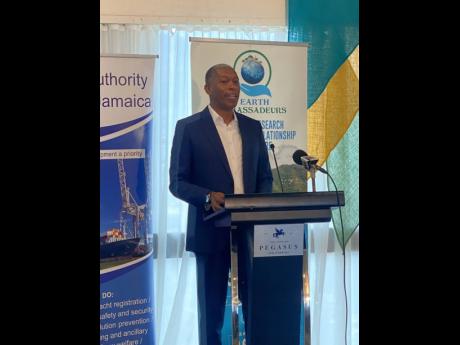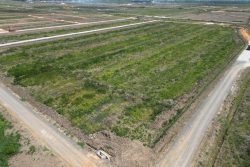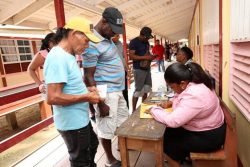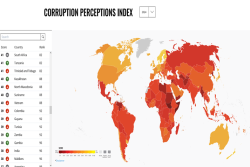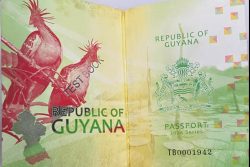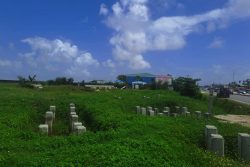(Jamaica Gleaner) Four months after a mystery shipwreck caused a disastrous oil spill from the Caribbean island of Tobago to neighbouring Bonaire, Bertrand Smith, director general of the Maritime Authority of Jamaica, wants more support for the country’s marine planning and the prevention of ghost fishing.
The oil leak came from a barge carrying up to 35,000 barrels of fuel oil that capsized in early February off Tobago. At 7:20 a.m. on Wednesday, February 7, the Tobago Emergency Management Agency (TEMA) received a report of a capsized ship approximately 150 to 200 metres south of Cove, Tobago, with a thick, oil-like substance washing up on nearby coastlines and spreading across Tobago’s windward coastal waters.
Now, should Jamaica experience a major oil spill, Smith questions whether the nation will be ready.
“Our relationship with the ocean has to change, and we must strive to safeguard our oceans and our environment for our children, our grandchildren, and the generations to come. What we do today, and over the coming years, will be crucial for their future and their world,” Smith, who was appointed director general of the Maritime Authority in April, said recently while giving his address in recognition of World Oceans Day, which was globally recognised on June 8.
“I think, to date, the cost of the spill is about US$25 million, and 45 years to the day, we had the largest oil spill in the world [which] happened off the coast of Tobago. Two oil tankers collided, but thankfully, all the oil was carried by the wave action out to sea. So we are at risk. So this dependence on shipping and associated risks means that we need to strike a balance, a careful balance between protecting and preserving our oceans while exploiting its resources in a sustainable way,” he said.
While Smith was delivering his address on the eve of World Oceans Day at the World Oceans Day Ceremony by Earth Ambassadeurs on June 7, he also made reference to autoliners which frequently deliver motor vehicles to the capital city. And while he was speaking from the top floor, Talk of the Town, two Höegh Autoliners were visible in the Kingston Harbour.
“Ships bring risks. A few weeks ago, we had a very large oil spill in Tobago that has devastated their biodiversity. One large oil spill can impact our economy significantly,” Smith warned.
For his part, at the Maritime Authority, he said they are currently implementing a global project that will remove and reduce marine litter from the transport and the fishing sectors, but youth leadership is needed to drive the change for a better future for the planet.
He said Jamaica, represented by the Maritime Authority, is an active member of the International Maritime Organization (IMO) – which is the UN agency responsible for the safety and security of shipping and the marine and atmospheric pollution from ships.
He said their actions are also in keeping with the International Convention for the Prevention of Pollution from Ships (MARPOL).
This is the main international convention covering prevention of pollution of the marine environment by ships from operational or accidental causes. The MARPOL was adopted on November 2, 1973, at the IMO.
“These targets are very ambitious and include a basket of measures that will, together, increase the energy efficiency of ships and reduce noxious oxides and sulfur oxides from ship emissions,” Smith said.
“We have to act now. We have to educate our people, and shipping is playing its part, and so is the Maritime Authority,” he said.
He said while ships contribute only two per cent of global greenhouse gases, and that appears small, the content is equivalent to other threats, which include CO2 emissions that are threatening to the environment.
Amid the Government’s major push to implement new laws geared at saving the environment from unnecessary plastics, Smith said he believed that ghost fishing — a major killer of the local marine environment — was being overlooked.
Ghost fishing refers to the phenomenon where lost and abandoned fishing gear, such as nets and traps, continue to catch and kill marine life without providing any benefit.
“What are we doing to support these efforts? What is the Maritime Authority doing? We’re currently implementing a global project that will remove and reduce marine litter from the transport and the fishing sectors. “
Along with the FAO (Food and Agriculture Organization of the United Nations) and the National Fisheries Authority, there is a project to mark fishing gear to ensure that discarded gear is recovered and recycled, and this will reduce ghost fishing,” Smith said.
“We [the Maritime Authority] are doing our part to reduce ghost fishing and having the micro plastics being administered to the bellies of the fish … . Jamaica, and other member states of the IMO, are catalysing action for oceans and our climate. We’re taking active steps to decarbonise shipping by removing greenhouse gases from ships’ emissions, aiming at zero or net zero by 2050,” he said.
